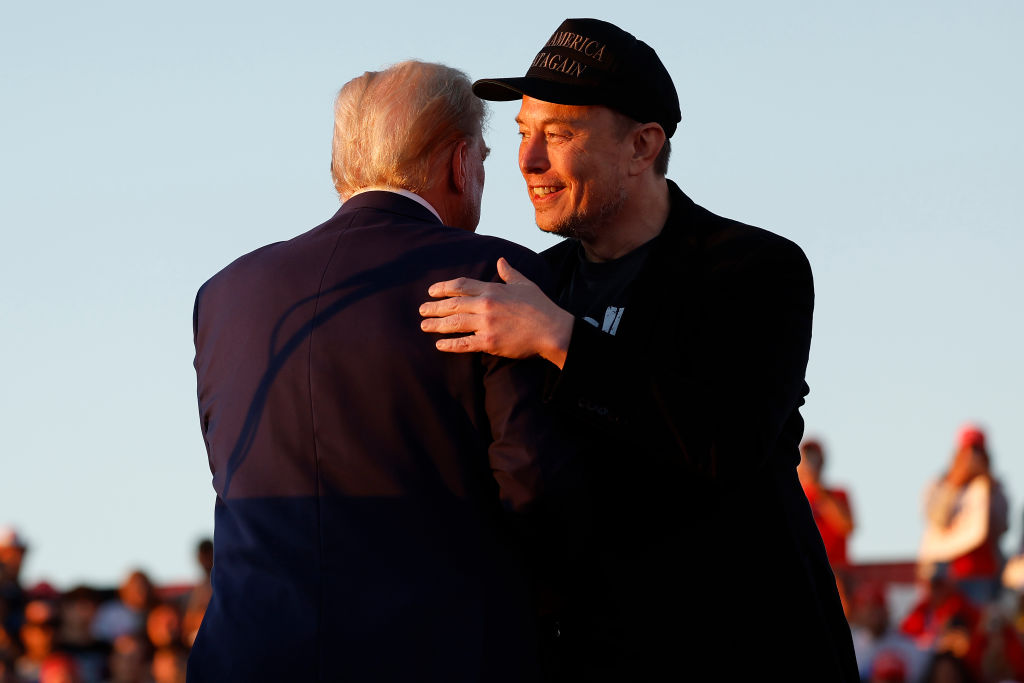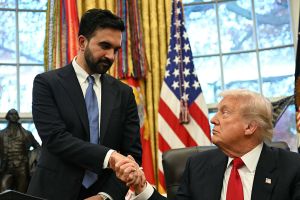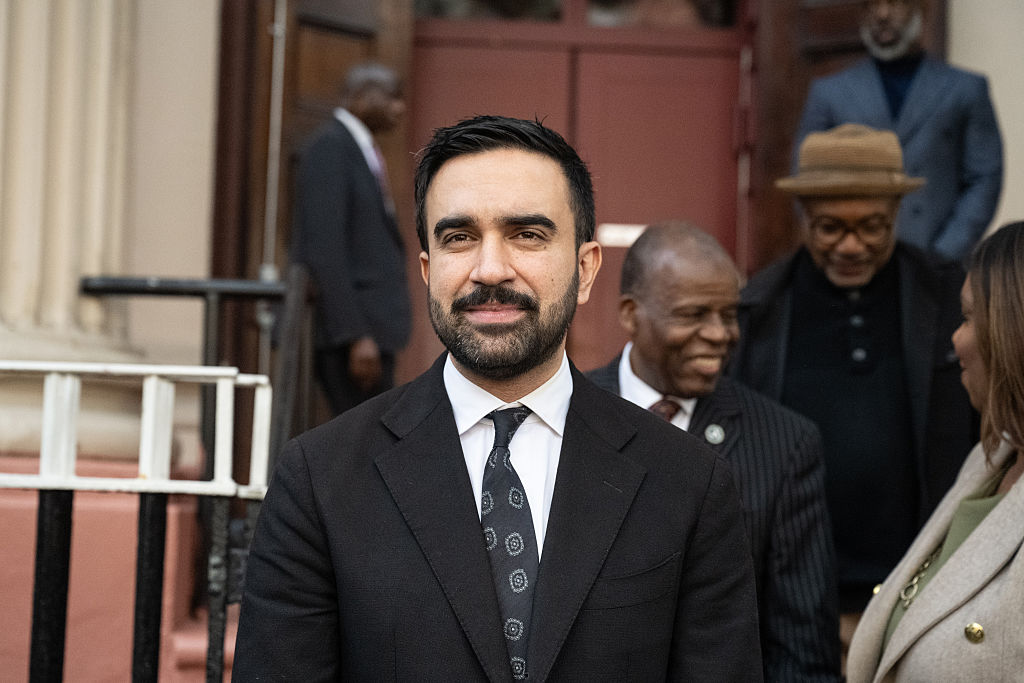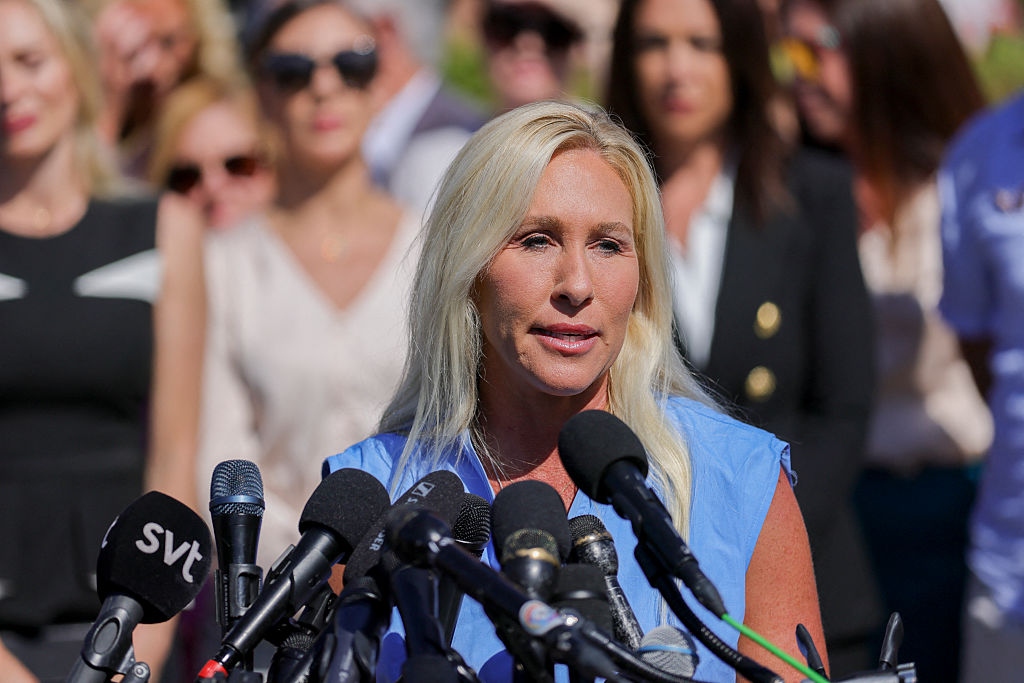Xi Jinping was quick with his congratulations, urging Donald Trump to “forge the right path for China and the United States to get along in the new era.”
After the previous election in 2020, the Chinese president was one of the last world leaders to message Joe Biden on his victory. His speed this time is perhaps testament to the fragility of the Chinese economy and an awareness in Beijing of the potential consequences of further sanctions. UBS has calculated that Trump’s threatened 60 percent tariffs on all Chinese exports to the United States would more than halve China’s already faltering growth rate.
Beijing was careful to appear neutral during the presidential campaign — and not to show any signs of nerves. Semi-official commentary tended to stress that the outcome would make little difference, such is the bipartisan hawkishness on China in Washington, or else to portray the election as a farce. Even Beijing’s hackers appear to have been even-handed, reportedly targeting the phones of Trump and his running mate, J.D. Vance, as well as people affiliated with Kamala Harris’s campaign.
It is a truism to say that turmoil from Trump’s second term is a positive for China and its wider ambitions to build a new world order, but nothing is simple or predictable about the president-elect. During his first term, he was an admirer of Xi (and other autocrats) yet changed the conversation on China. “Before I came along, nobody talked about China,” he said in an October 10 speech at the Detroit Economic Club. He triggered the biggest rethink in US-China relations in decades, a policy continued and in many ways intensified by Biden. During the election campaign, he brought up China far more regularly than did Kamala Harris; indeed, Harris and her running mate Tim Walz barely mentioned the country, even though Walz had more experience of China as a teacher there and study group organizer than any previous candidate for high office.
Beijing will no doubt be encouraged by Trump’s apparent indifference to the defense of Taiwan, which he has accused of stealing the US chip industry. Yet when asked about the island during the election campaign, he told the Wall Street Journal that he would not have to use force to prevent a blockade because Xi “respects me and knows I’m fucking crazy.” “I had a very strong relationship with him,” he said. “I would say: if you go into Taiwan, I’m sorry to do this, I’m going to tax you at 150 percent to 200 percent.”
Trump has argued that China and other adversaries would not act against US interests because they fear an unpredictable response. He has threatened to sanction Chinese electric cars being built in Mexico to sidestep tariffs and to eliminate other of Beijing’s remaining trade privileges, while interspersing his threats with flattery about Xi. “I will revoke China’s most favored trade status. It’s very unfair. And by the way, I have great respect for President Xi. I think China and the United States will get along well together,” he told a campaign rally in Pennsylvania.
Human rights have never much figured in Trump’s criticism of China. He is transactional, which is something Beijing can relate to, and is why he focuses so much on tariffs, trade and deal-making. That was evident in his campaign criticism of the Biden administration’s CHIPS and Science Act, which was passed with bipartisan support and committed almost $53 billion to invest in domestic semiconductor manufacturing and research. It was seen as a way of boosting US competitiveness with China and was accompanied by intensifying efforts to block Beijing’s access to top-end chips and other advanced tech. During the campaign he called the act a “bad” deal and suggested that chip companies would come to the US anyway, encouraged by his tariff wall. “I do think there’ll be much more action on the tariffs expanding, rather than industrial policy expanding,” he said. Although most of the money has yet to be allocated, Trump is most likely to settle for relatively minor changes, focusing more on building up American companies.
The broader tech competition with China — stepped up by Biden — has sometimes seemed of secondary importance to Trump. This is where the role of Elon Musk at the heart of Trump’s campaign is particularly intriguing. He will certainly be seen by Beijing as an important asset.
‘Comrade Trump returns to the palace’ was one way Trump’s victory was greeted by Chinese social media
The Tesla boss was one of Trump’s most vocal supporters, but few people are more dependent on China as a market and production center. Musk has accepted multiple favors from the Chinese Communist Party in setting up his electric vehicle manufacturing facilities in Shanghai. The CCP wanted to host the world’s most innovative company as a way of galvanizing its own EV supply chains — an ambition which has succeeded to the point that Chinese EVs are now challenging Tesla for global dominance. Musk has access to top Chinese leaders that many western politicians can only dream about.
In return, Musk — the self-described free-speech fundamentalist — has been careful not to criticize the CCP, echoing its talking points on issues ranging from Taiwan to artificial intelligence. “China rocks!” he once said. While remarks praising the “smart, hard-working people of China,” whom he has contrasted with “complacent” and “entitled” Americans, are unlikely to go down well with Trump’s base, if Musk is given a role in the new administration it is hard to see how his views on China will square with a president who has also shown extreme skepticism about EVs.
China’s economic problems were underlined Friday when Beijing announced a 6 trillion yuan ($840 billion) package to bail out local governments, whose hidden debts now total 50 trillion to 60 trillion yuan ($7 trillion to $8.4 trillion), according to Nomura, a bank. That’s equivalent to almost half the country’s GDP and has been exacerbated by the collapse in the property market, on which local governments depended for land sales. The package was only the latest in a series of stimulus measures, which have given a temporary boost to the stock market but fail to tackle the more fundamental issues of an economic model that is no longer sustainable. Exports — heavily subsidized according to critics — have been one of the few bright spots, which is why Trump’s tariffs are particularly worrying for Chinese policymakers.
“Comrade Trump returns to the palace” was one way Trump’s victory was greeted by Chinese social media. The hashtag “Trump officially declares victory” received 870 million views, according to Weibo Watch, which monitors the country’s biggest social media platforms. “The upcoming four years are going to be entertaining,” was another popular comment — though perhaps not for the CCP.
This article was originally published on The Spectator’s UK website.


























Leave a Reply